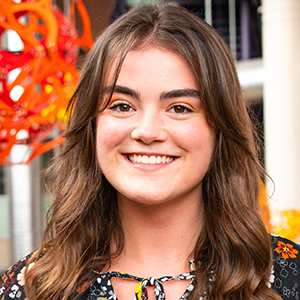
Curiosity turned a dietitian into a lipid scientist
Judy Storch began her career as a clinical dietitian. “I was always interested in food and nutrition,” she said, “but realized that I wanted to understand the scientific underpinnings of what I was telling people to eat.”
Eager to learn more about the science behind her nutrition advice, she pursued a master’s degree. What began as curiosity morphed into a love for bench work and a path to a career in lipid research.

Now a distinguished professor of nutritional sciences at Rutgers University, Storch enjoys discussing research with her lab members and reading papers about new findings.
“What you see in the textbook is already interesting,” she said, “but fundamental new discoveries are really exciting.”
Storch’s work shows that lipid-binding proteins are multifunctional. “They do more than just bind a lipid,” she said. “They are also important as regulatory molecules and for communication within the cell.”
She is a self-proclaimed reductionist, which drives her passion for understanding protein structure and lipid–protein interactions on multiple levels.
“In my lab, we look at things at the molecular level, the cellular level and the whole-animal level,” she said. “By putting all this together, we try to get a picture of what these proteins are doing within cells.”
Storch said she owes her success to support and excellent mentorship during her training years and as a faculty member.
“I had people who took me seriously as a scientist, and that wasn’t necessarily true for women in labs at the time,” she said.
Looking back, she is grateful for her mentors’ and colleagues’ encouragement and values this for her own trainees.
For her work, Storch will receive the American Society for Biochemistry and Molecular Biology’s Avanti Award in Lipids, which recognizes outstanding research contributions in the area of lipids, at the 2025 ASBMB Annual Meeting, April 12–15 in Chicago.
Storch was surprised to hear she won the award.
“I’m closer to the end of my career than the beginning,” she said, “but it’s nice for my lab to have this recognition that the work that we’re doing is of interest to people.”
New ways to look at lipid-binding proteins
Intracellular lipid-binding proteins, or LBPs, play an important role in gene regulation, signal transduction and metabolism. Two important types of LBPs are fatty acid binding proteins, or FABPs, and Neimann Pick C2, or NPC2, a cholesterol-binding protein. Researchers cannot completely understand the physiological functions of these proteins using standard biophysical methods, so they need to use transdisciplinary approaches.
Storch’s lab developed novel techniques to study these functions, helping to elucidate lipid binding and transport kinetics as well as membrane–protein interactions. Using these methods, the lab found that different FABPs have dramatically different ligand transfer mechanisms.
George Carman, a Journal of Lipid Research associate editor who nominated Storch for the award, wrote in his nomination letter, “This finding focused the field on the fact that the different FABPs are likely to have different functions, despite their common fatty acid–binding property.”
Through her strategies to understand NPC2-regulated cholesterol transport, Storch also identified a potential therapeutic approach to treat Neimann Pick C, a neurodegenerative storage disorder.
Storch will share the details of her lab’s work on FABPs and NPC2 at the 2025 ASBMB Annual Meeting.
ASBMB 2025 award winners
Read profiles of all the society’s 2025 honorees who will receive their awards and give talks at the ASBMB Annual Meeting, April 12–15 in Chicago.
From receptor research to cancer drug development: The impact of RTKs
Joseph Schlessinger receives the ASBMB Herbert Tabor Research Award.
Computational and biophysical approaches to disordered proteins
Rohit Pappu receives the DeLano Award for Computational Biosciences.
Leading the charge for gender equity
Nicole Woitowich receives the ASBMB Emerging Leadership Award.
Helping underrepresented scientists feel seen
Benjamin Garcia receives the ASBMB Ruth Kirschstein Diversity in Science Award.
Transforming learning through innovation and collaboration
Neena Grover receives the William C. Rose Award for Exemplary Contributions to Education.
Curiosity turned a dietitian into a lipid scientist
Judy Storch receives the Avanti Award in Lipids.
Elucidating how chemotherapy induces neurotoxicity
Andre Nussenzweig receives the Bert and Natalie Vallee Award.
What seems dead may not be dead
Vincent Tagliabracci receives the Earl and Thressa Stadtman Distinguished Scientist Award.
'You can't afford to be 15 years behind the parasite'
David Fidock receives the Alice and C.C. Wang Award in Molecular Parasitology.
Guiding grocery carts to shape healthy habits
Robert Helsley receives the Walter A. Shaw Young Investigator in Lipid Research Award.
Enjoy reading ASBMB Today?
Become a member to receive the print edition four times a year and the digital edition monthly.
Learn moreGet the latest from ASBMB Today
Enter your email address, and we’ll send you a weekly email with recent articles, interviews and more.
Latest in People
People highlights or most popular articles

Simcox wins SACNAS mentorship award
She was recognized for her sustained excellence in mentorship and was honored at SACNAS’ 2025 National Conference.

From humble beginnings to unlocking lysosomal secrets
Monther Abu–Remaileh will receive the ASBMB’s 2026 Walter A. Shaw Young Investigator Award in Lipid Research at the ASBMB Annual Meeting, March 7-10 in Washington, D.C.

Chemistry meets biology to thwart parasites
Margaret Phillips will receive the Alice and C. C. Wang Award in Molecular Parasitology at the ASBMB Annual Meeting, March 7-10 in Washington, D.C.

ASBMB announces 2026 JBC/Tabor awardees
The seven awardees are first authors of outstanding papers published in 2025 in the Journal of Biological Chemistry.

Decoding how bacteria flip host’s molecular switches
Kim Orth will receive the Earl and Thressa Stadtman Distinguished Scientists Award at the ASBMB Annual Meeting, March 7–10, just outside of Washington, D.C.

Thiam elected to EMBO
He was recognized during the EMBO Members’ Meeting in Heidelberg, Germany, in October.

